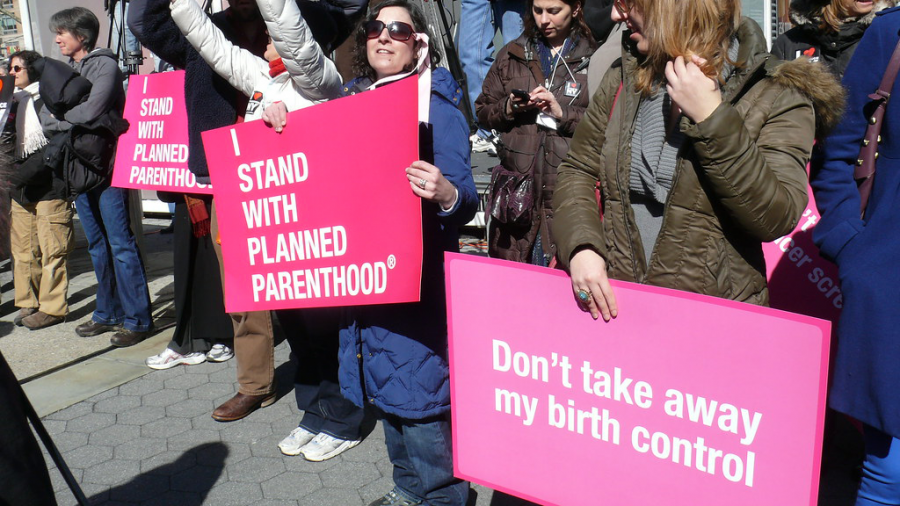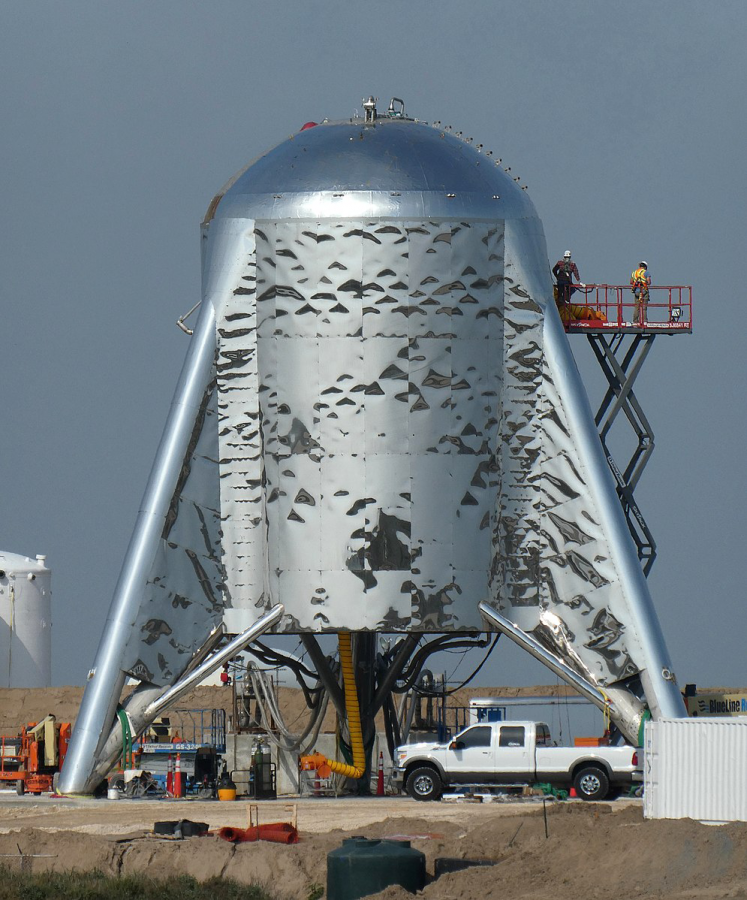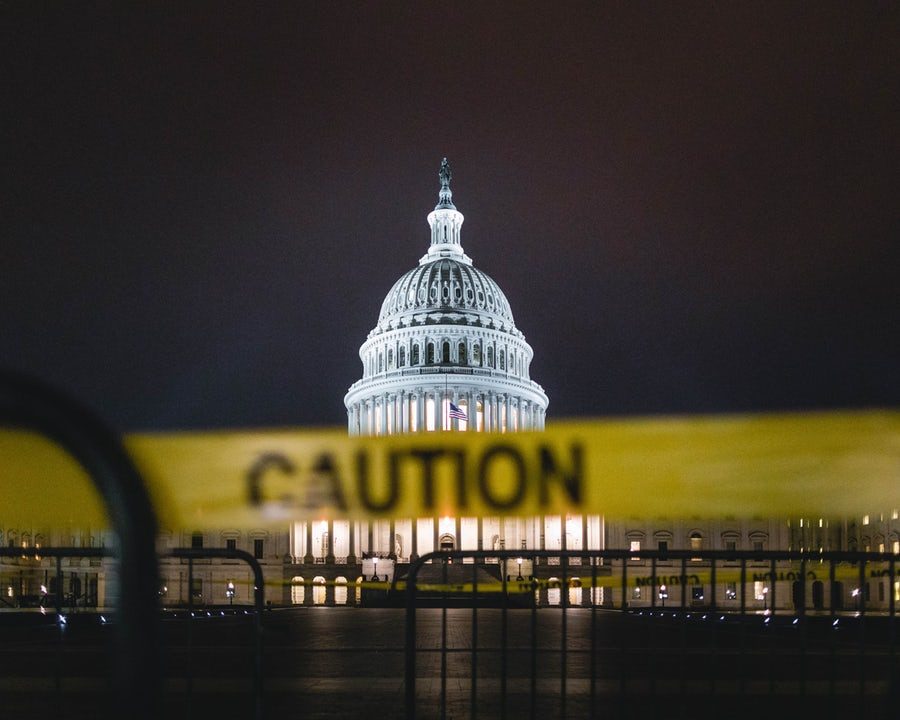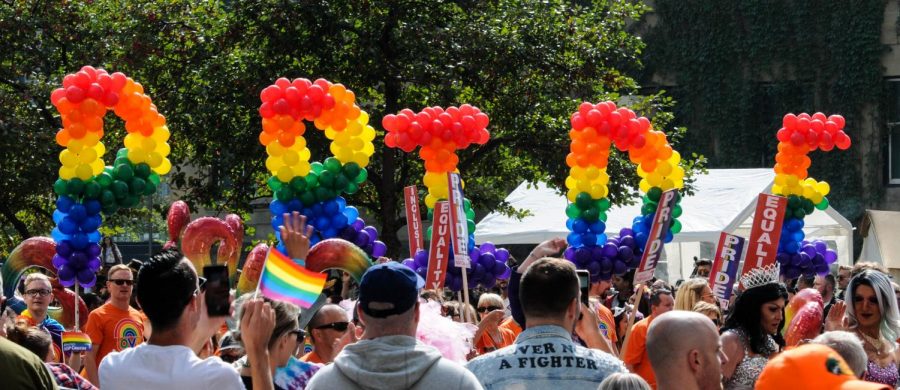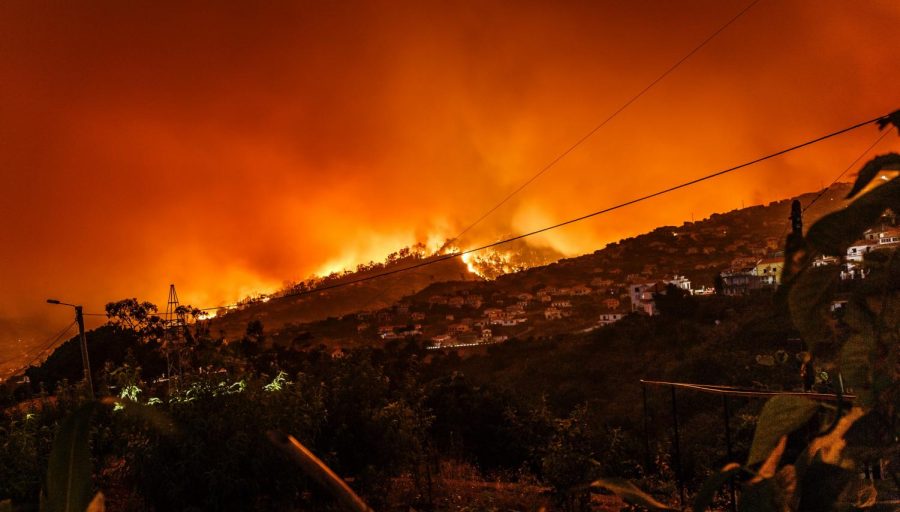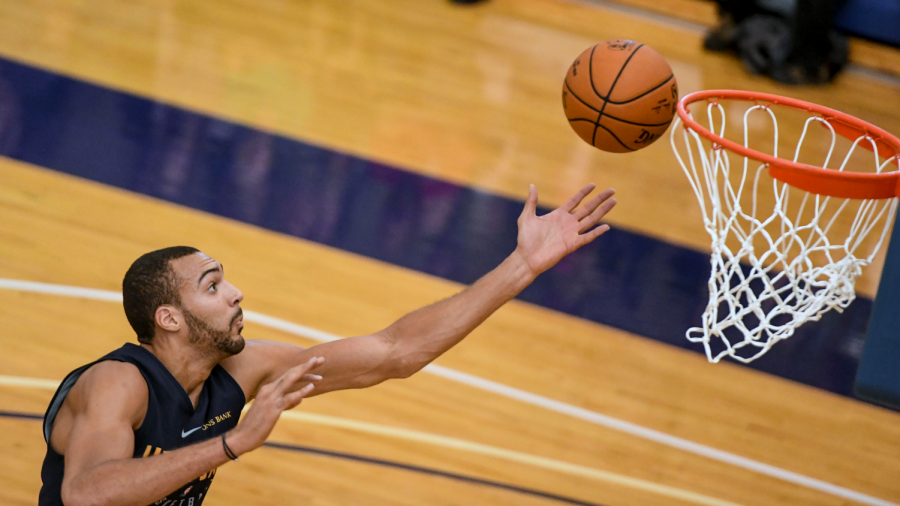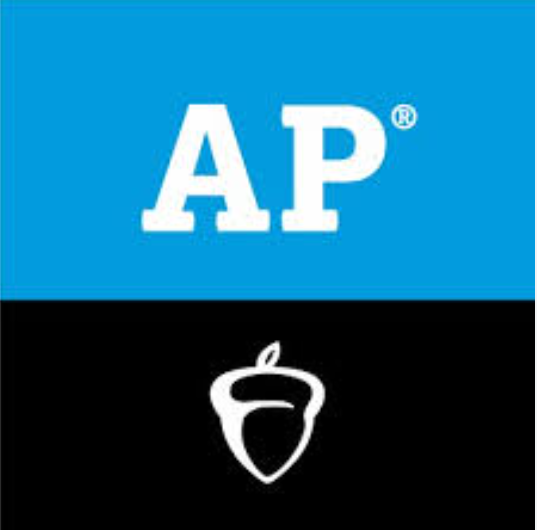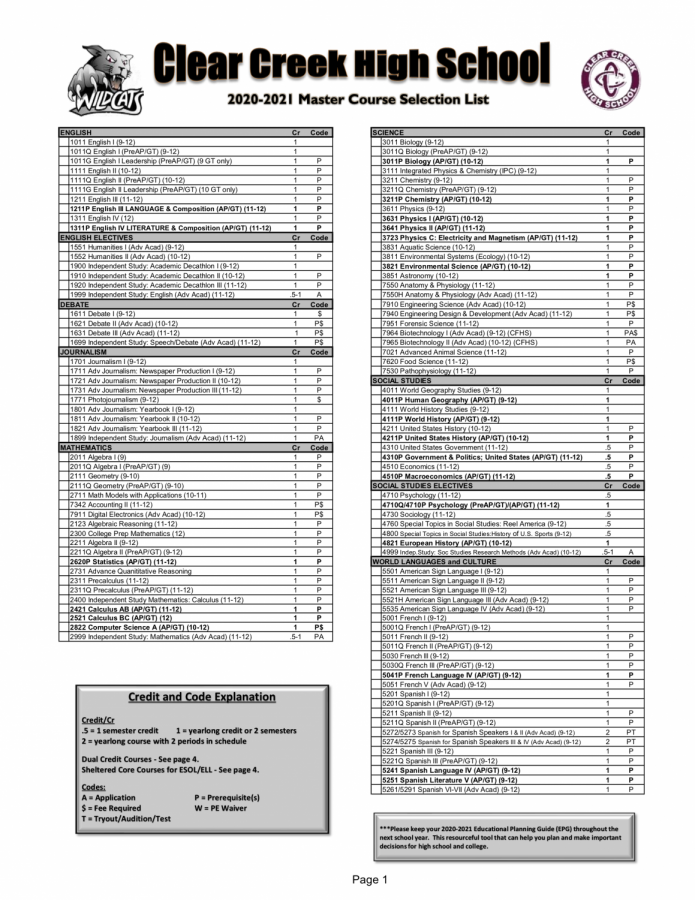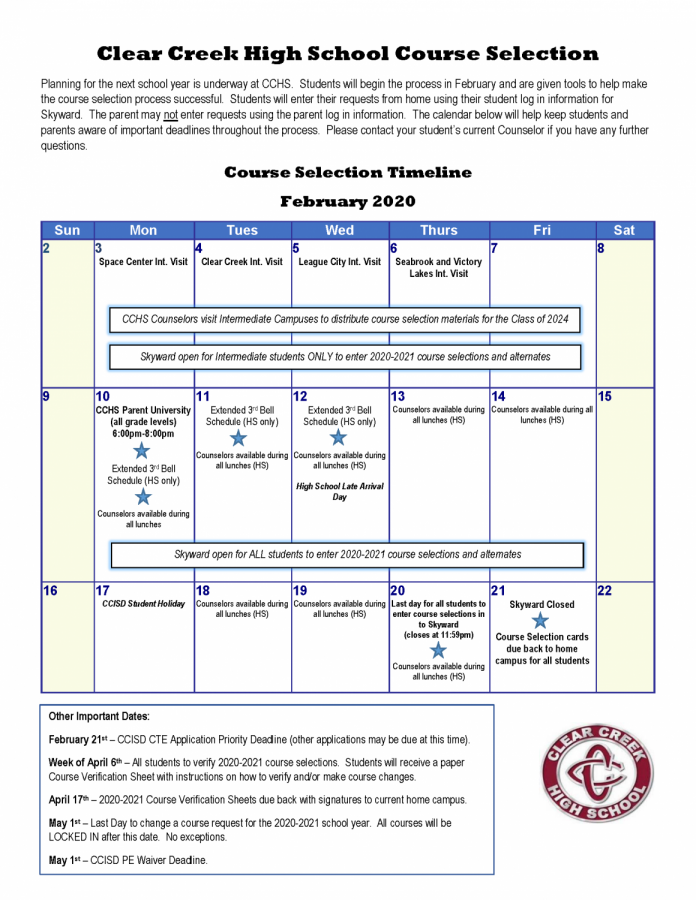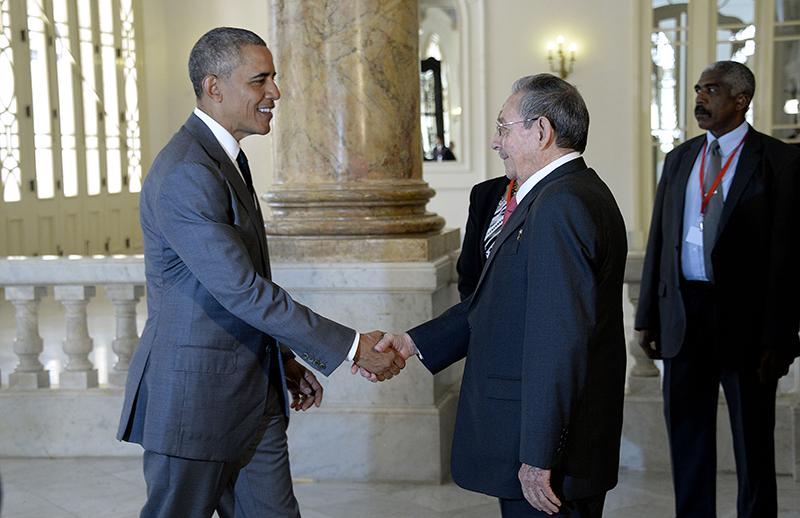Obama Visits Cuba
U.S. President Barack Obama and Cuban President Raul Castro shake hands before delivering remarks to the people of Cuba at the El Gran Teatro de Havana on Tuesday, March 22, 2016, in Havana, Cuba. (Olivier Douliery/Abaca Press/TNS)
April 12, 2016
President Obama became the first sitting president in 88 years to visit the island nation of Cuba during a historic visit in late March, 15 months after he announced the restoration of diplomatic ties between the United States and Cuba. Obama participated in an official state dinner, held a bilateral meeting with Cuban President Raul Castro, spoke to entrepreneurs and dissidents, attended a baseball game, and addressed the Cuban people in a historic speech.
A decades-long trade embargo, which Castro called the “the most important obstacle to our economic development and the well-being of the Cuban people” is still in place between the United States in Cuba, and can only be lifted by Congress. While Obama has made it clear he wishes to remove the embargo, he recognizes that it will not be done by the end of his term.
The Obama administration has eased restrictions in Cuba, including making is easier for individuals to travel to Cuba by themselves and not in a tour group, allowing American companies to hire Cuban nationals, and adjusting the U.S. banking system to process money from Cuba. Direct flight agreements and the direct mail delivery are also in the works; the recent first direct mail delivery included a letter to President Obama.
Some lawmakers did oppose the trip, including some Cuban-American Democrats and Republicans who do not agree with the normalization of relations between the two countries while the Castro family is still in power.
Obama declared a “new day of openness” between the U.S. and Cuba at his dual press conference and meeting with Raul Castro at the Revolutionary Palace. The “frank” and “at times awkward” exchange between the two world leaders included traded criticism of their countries, however, both claimed to be committed to continuing on a path of normalizing relations.
While press conferences in which journalists ask tough or prying questions are commonplace in the United States, Castro seemed flustered by the onslaught of questions, and quickly became defensive when asked about political prisoners held in Cuba.
“Give me a list of the political prisoners and I will release them immediately,” Castro said. “Just mention the list. What political prisoners?”
Castro also stated that countries like the United States that do not provide healthcare, education, or equal pay to all citizens should not criticize Cuba, and the military base of Guantanamo Bay should be returned to his country.
“I affirm that Cuba’s destiny will not be decided by the United States or any other nation,” Obama said in the speech. “Cuba is sovereign and rightly has great pride, and the future of Cuba will be decided by Cubans, not by anybody else.”
Obama then attended a baseball game of the Tampa Rays vs. the Cuban National team with wife Michelle and daughters Sasha, and Malia.
In a speech to the Cuban people the next day, Obama called for the U.S. and Cuba to “leave the past behind” and make a “journey as friends and neighbors and as family, together” to the future.
“I have come here to bury the last remnant of the Cold War in the Americas,” he said to applause. “I have come here to extend the hand of friendship to the Cuban people. Not everyone agrees with me on this,” Obama said, “but I believe those human rights are universal. I believe they are the rights of the American people, the Cuban people and people around the world.”




